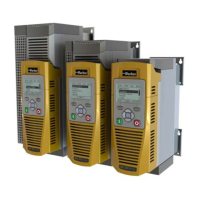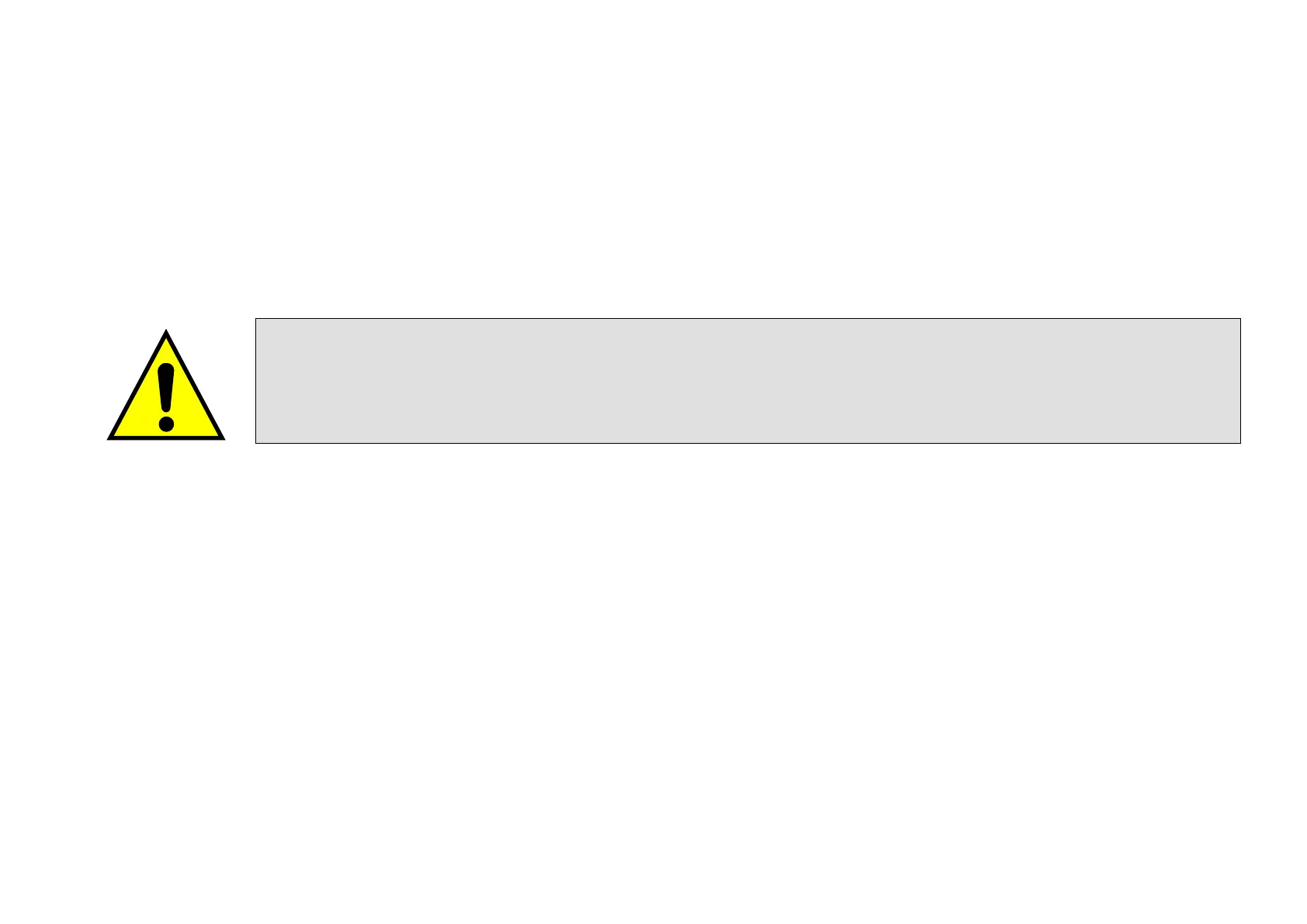6-19 Safe Torque Off
AC30V series Variable Speed Drive
greater than the duration of the braking ramp controlled by the AC30V with maximum load inertia and from maximum speed. Any
external forces must also be considered, e.g. effects due to gravity.
• When implementing a SS1 function with the AC30V, the user is responsible for ensuring the drive’s configuration will allow a controlled
braking ramp to be initiated by the external safety device. This is particularly important when using serial link communications for
normal control of the drive.
• During the active braking phase of SS1 or Stop category 1 (controlled stop with safely monitored time delay according to EN60204-
1:2006), faulty operation of the drive must be allowed for. If a fault in the drive system occurs during the active braking phase, the load
may coast to a stop or might even actively accelerate until expiration of the defined time delay. It is not the remit of this document to
specify these measures. This is for the user to assess.
• When the AC30V detects either an internal STO fault or an external single-channel user fault, the user must immediately fully resolve
the fault. The user must ensure dual-channel operation has been fully restored before attempting to use the AC30V STO safety feature.
DANGER
FAILURE TO DO SO COULD RESULT IN STO NOT BEING ACHIEVABLE, AND THUS THE MOTOR MAY ROTATE UNEXPECTEDLY
AND COULD RESULT IN INJURY, DEATH OR DAMAGE. FURTHER OPERATION OF THE AC30V WITHOUT RESOLVING THIS
FAILURE IS ENTIRELY AT THE USER’S OWN RISK. SEE SAFETY CATEGORY DEFINITIONS AND LIMITATIONS, REFER TO EN ISO
13849-1:2008.
• It is the user’s responsibility to ensure that their overall control implementation recovers safely from supply loss or dips.
• In all instances it is the user’s responsibility formally to perform suitable risk assessments, and invoke and fully validate the necessary
risk reduction measures after having thoroughly understood the application, the drive product and its features. Of special relevance is to
assess the risk of the two STO user inputs shorting together.

